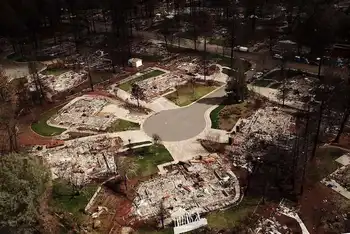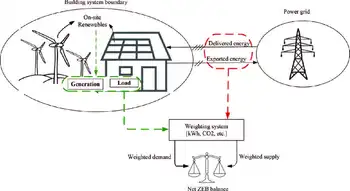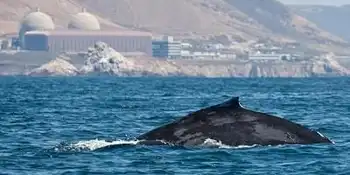Group against Highwood plant challenges corps
By Associated Press
CSA Z463 Electrical Maintenance
Our customized live online or in‑person group training can be delivered to your staff at your location.

- Live Online
- 6 hours Instructor-led
- Group Training Available
The corps did not meet a legal requirement that federal agencies consider how their actions will affect historic properties, the nonprofit National Trust for Historic Preservation wrote in a letter to Col. David C. Press, the corps' district commander in Omaha, Neb.
With earth moving having begun, it is harder to consider ways in which the Highwood Generating Station could be modified to avoid, minimize and mitigate harm to historic property, the National Trust said.
The site for the coal-fired Highwood project includes part of the Great Falls Portage National Historic Landmark, which encompasses the place where the Lewis and Clark expedition left the Missouri River in 1805 and made a 31-day portage around the river's Great Falls.
Maintaining that the power plant threatens irreparable harm, the National Trust put Great Falls Portage on the organization's 2008 list of America's 11 Most Endangered Places.
A spokesman for the corps, which is one of the entities from which Highwood developers must have permits, declined to comment on the letter to Press. The colonel had not received the letter and commenting would be premature, spokesman Kevin Quinn said.
The letter includes a call for the corps to demand that all onsite work related to the Highwood project stop, and that there be no further work on the ground before a review considering historic resources is complete. The letter was dated four days before construction work at the Highwood site ceased, following word from the Montana Department of Environmental Quality that the work had begun too soon. It was not to have started before an air-quality permit for the plant became final, DEQ's Bob Gallagher said.
In another effort against the plant, four conservation groups say Highwood's emission controls would be inadequate to protect public health from fine particulate and hazardous pollutants, including mercury, and therefore the air-quality permit should be invalidated. Citizens for Clean Energy, the Sierra Club, the Montana Environmental Information Center and the National Parks Conservation Association submitted an appeal to the Montana Board of Environmental Review, the Great Falls Tribune reported.
Lawsuits clouding Highwood include one over rezoning of the site.
The Highwood groundbreaking occurred Oct. 15 as developer Southern Montana Electric and Generation Cooperative tried to meet a Nov. 30 regulatory deadline for progress on preliminary construction.
Chief executive Tim Gregori did not immediately return a call about the status of the work and about complaints by the National Trust.
A July 11 letter from the corps prohibited certain aspects of work on the Highwood project but "clearly suggests by implication that other work on the project may proceed, including bulldozing" within a historic landmark, the National Trust wrote.
Although the Great Falls Portage National Historic Landmark is not totally undeveloped, "it absolutely maintains the general setting that was there" in the time of the Lewis and Clark expedition, Amy Cole, a lawyer for the National Trust in Denver, said. There are power lines, agricultural buildings and farming, but "it is not an industrial place right now," Cole said. "It will be after this plant is built, if that happens."
Cole said maps she has seen in connection with the Highwood project are largely conceptual and she does not know how much of the national landmark is in the Highwood site.











